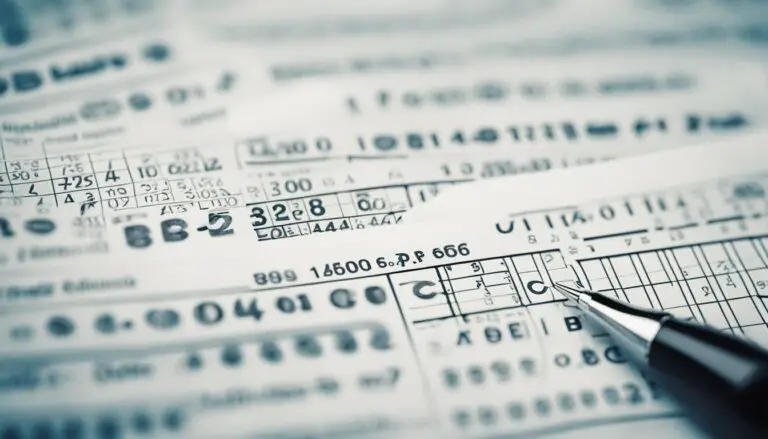How to Convert AP Scores to GPA: A Clear and Knowledgeable Guide
The College Board conducts AP exams, assessing high school students on a 1 to 5 scale for college-level knowledge.
GPA, or grade point average, reflects high school academic performance, typically on a 0.0 to 4.0 scale, by averaging class grades.
The connection between AP and GPA lies in how AP classes impact GPA. Some high schools use a weighted GPA system, granting higher value to AP class grades. This means that an A in an AP class contributes more to a student’s GPA than an A in a non-AP class.
Converting AP scores to GPA hinges on recognizing the distinction between weighted and unweighted GPAs.
Typically, GPAs are computed on an unweighted 0 to 4.0 scale, though some schools adopt a weighted system to account for class difficulty.
When converting AP scores to GPA, students should consult their high school’s conversion chart, which will provide the specific GPA values assigned to each AP score.
Generally, an AP score of 5 equals an A+ in an AP class, typically worth 5.0 points on a weighted GPA scale.
An AP score of 4 equals an A-, usually worth 4.0 points on a weighted GPA scale. An AP score of 3 equals a B, typically worth 3.0 points on a weighted GPA scale.
Not all high schools use a weighted GPA system; some colleges may recalculate a student’s GPA using their formula. Additionally, colleges may have different policies regarding AP credit and how it impacts a student’s GPA.
It’s always a good idea for students to check with their high school guidance counselor or college admissions office for more information on how AP scores are calculated and how they may impact a student’s GPA.
How AP Scores are Calculated
AP scores result from a combination of multiple-choice and free-response sections. The multiple-choice part is computer-scored, with one point for each correct answer and slight deductions for incorrect ones, leaving unanswered questions penalty-free.
🌟 Hey Students! 🚀 Ready for the ultimate experience? Join us on Studentsinside.com's Facebook, YouTube, WhatsApp, and LinkedIn. Click now for tips, fun, and success vibes! 🌈✨ #StudentLife #JoinUs
A statistical process called equating converts the correct answers into a scaled score between 1 and 5.
Conversely, the free-response section is graded on a 0 to 9 scale by trained AP teachers and college professors, using guidelines from the College Board to evaluate responses.
These two section scores are then amalgamated to yield the final AP score, which falls on a scale of 1 to 5. Significantly, AP scores aren’t determined by a curve or a percentage grade but rather by the mastery of knowledge and skills essential for each score level.
Consequently, the percentage of correct answers or grades from other assessments does not directly correspond to the final AP score.
Understanding GPA Scales
A student’s academic performance is quantified through GPA, transforming letter grades or percentages into a 0.0 to 4.0 scale. A higher GPA reflects superior academic achievement.
GPA Scale
The GPA scale is usually structured around a 4.0 scale. In this system, an A corresponds to 4.0 points, a B to 3.0 points, a C to 2.0 points, a D to 1.0 points, and an F to 0.0 points.
However, variations exist, with some institutions employing a 5.0 scale, valuing an A at 5.0 points, or even a 100-point scale, where an A falls within the 90-100 point range.
Weighted GPA vs. Unweighted GPA
Many high schools use a weighted GPA scale, which gives more weight to grades earned in advanced courses such as honors or AP classes.
This means that an A in an honors or AP class may be worth 4.5 or 5.0 points instead of 4.0. This can result in a higher weighted GPA for advanced course students.
On the other hand, an unweighted GPA is calculated using the standard 4.0 scale, regardless of the level of difficulty of the courses taken. This means that an A in a regular class and an A in an honors or AP class are worth 4.0 points.
Weighted and Unweighted GPA Calculation
To calculate an unweighted GPA, add the grade points earned for each course and divide by the total number of courses.
For example, if a student earned an A in five courses and a B in one course, their unweighted GPA would be (4.0 + 4.0 + 4.0 + 4.0 + 4.0 + 3.0) / 6 = 3.83.
To calculate a weighted GPA, first, assign the appropriate weight to each grade earned in an advanced course. Then, add the weighted grade points earned for each course and divide by the total number of courses.
For example, if a student earned an A in two honors classes (worth 4.5 points each) and an A in three regular classes (worth 4.0 points each), their weighted GPA would be (4.5 + 4.5 + 4.0 + 4.0 + 4.0) / 5 = 4.2.
Converting AP Scores to GPA
Converting AP scores to GPA can be confusing, but it’s essential to understand how it works. AP (Advanced Placement) scores are used to boost your GPA, which can help you stand out from colleges and universities. This section will discuss the methods for converting AP scores to GPA.
Conversion Table
You need to use a conversion table to convert AP scores to GPA. The table assigns a point value to each AP score, which is then used to calculate your GPA. The point value assigned to each score varies based on the subject and the course level.
Conversion Scale
The GPA conversion scale for AP scores is grounded in a 5.0 system, acknowledging the heightened difficulty of AP courses. An AP score of 5 translates to an A+ in a regular course, contributing 5.0 points to the GPA.
Calculator
There are several online calculators available that can help you convert your AP scores to GPA.
These calculators consider the conversion table and the conversion scale to provide an accurate GPA calculation. Some calculators also allow you to enter your grades from regular courses to calculate your overall GPA.
GPA Calculator
In addition to using a calculator to convert your AP scores to GPA, you can also use a GPA calculator to calculate your overall GPA.
GPA calculators consider all your grades from all your courses and calculate your GPA on a 4.0 scale.
If you have taken AP courses, the calculator will use the conversion table and conversion scale to adjust your GPA accordingly.
Decimals
When converting AP scores to GPA, decimals are often used to represent partial points. For example, a score of 4 on an AP exam is worth 4.0 points, while a score of 4.5 is worth 4.5 points. It’s essential to keep track of decimals when calculating your GPA to ensure accuracy.
Role of Weighted and Unweighted GPA
Weighted and unweighted GPAs are two different ways to calculate a student’s grade point average. Unweighted GPA is calculated by adding up the numerical grades of all courses and dividing by the total number of courses taken.
Conversely, a weighted GPA incorporates course difficulty by adding value to honors, AP, and IB classes. Colleges and universities commonly use this method to accurately assess a student’s academic prowess.
However, the specifics of the weighted GPA system can differ among school districts, necessitating a discussion with your counselor to comprehend your high school’s unique approach.
An unweighted GPA, on the other hand, is a more straightforward way to calculate a student’s grade point average. High schools often use it to determine a student’s class rank.
An unweighted GPA needs to consider the difficulty level of the courses taken, so it may not accurately reflect a student’s academic abilities.
Weighted and unweighted GPAs affect a student’s high school GPA and cumulative GPA. High school GPA is the GPA calculated by the high school and is used for college applications. Cumulative GPA is the GPA calculated by the college or university and considers all courses taken, including transfer credits.
Impact of AP and Honors Classes on GPA
AP and Honors classes offer high school students an opportunity to earn college credit by engaging in more rigorous coursework than standard classes, often carrying a different GPA weight.
Honors classes typically carry a weighted GPA of 0.5, meaning that a student who earns an A in an Honors class would receive a 4.5 instead of a 4.0.
On the other hand, AP classes are typically weighted by a full point, meaning that a student who earns an A in an AP class would receive a 5.0 instead of a 4.0.
It’s important to note that while Honors and AP classes can positively impact a student’s weighted GPA, they do not affect their unweighted GPA. This means that if a student earns a B in an Honors class, it will still be a 3.0 in their unweighted GPA, even though it would be a 3.5 in their weighted GPA.
Another factor to consider is the number of credit hours each course carries. Colleges and universities often examine the number of credit hours students have completed when evaluating their applications.
AP and Honors classes typically carry more credit hours than standard courses, which can benefit students looking to stand out in the college admissions process.
Comparing AP and IB Courses
Students often need help choosing between Advanced Placement (AP) and International Baccalaureate (IB) courses. Both programs offer challenging coursework that can help students prepare for college-level work. However, students should consider critical differences between the two programs when choosing.
One of the main differences between AP and IB courses is the scope of the curriculum. While AP courses focus on specific subject areas, such as AP Biology or AP Calculus, IB courses are more interdisciplinary and require students to take courses in six subject groups: Language and Literature, Individuals and Societies, Language Acquisition, Sciences, Mathematics, and the Arts.
Another difference is the level of rigor. Both programs are designed to be challenging, but IB courses are more demanding than AP courses.
This is reflected in the grading system: IB uses a 1-7 scale, with a score of 7 being the highest possible grade, while AP uses a 1-5 scale, with a score of 5 being the highest possible grade.
Regarding GPA conversion, AP and IB courses are weighted, meaning they carry more weight than regular courses when calculating a student’s GPA.
However, the exact conversion varies by school and can depend on factors such as the level of the course (e.g., standard level vs. higher level for IB) and the grading scale used by the school.
How Colleges View AP Scores and GPA
Regarding college applications, academic achievement is crucial in the admissions process. Colleges consider AP scores and GPA as critical measures of academic performance when reviewing applications.
AP scores indicate a student’s mastery of college-level material and can demonstrate a student’s readiness for college-level coursework. Colleges may use AP scores in various ways, including determining course placement, awarding college credit, or assessing a student’s academic potential.
Conversely, GPA overall measures a student’s academic performance over time. It considers all students’ grades in high school and provides a snapshot of their overall academic achievement.
Colleges reviewing applications typically consider AP scores and GPA as part of a holistic review process. Admissions officers may look at a student’s GPA to get a sense of their overall academic performance while also considering their AP scores to see how well they have performed in specific subject areas.
It’s important to note that colleges may have different policies regarding AP scores and GPA. Some colleges may place more emphasis on AP scores, while others may place more emphasis on GPA. Additionally, some colleges may have specific AP scores or GPA requirements for admission or course placement.
Tips for Improving AP Scores and GPA
Improving one’s AP scores and GPA can be challenging, but it is not impossible. With dedication, hard work, and a few tips, students can improve their scores and achieve their academic goals. Here are some tips to help students improve their AP scores and GPA:
Develop Good Study Habits
Establishing effective study habits is paramount for academic success. Students should allocate dedicated study days to achieve this, fostering an ideal, distraction-free environment. Opting for a serene space with limited disruptions can significantly enhance concentration and information retention.
Practice Good Time Management
Time management is crucial when preparing for AP exams. Students should create a study schedule that allows them to cover all the material they need to learn before the exam. They should also prioritize their time, focusing on the most challenging subjects. Additionally, students should avoid procrastination and start preparing for exams early.
Seek Help When Needed
Students should be bold and seek help when they encounter difficulties with their coursework. They can seek help from their teachers, tutors, or classmates. Additionally, students can attend review sessions or join study groups to get additional help.
Take Practice Tests
Practicing with online or school-provided practice tests is a valuable strategy for AP exam preparation.
These tests enable students to pinpoint their strengths and weaknesses and concentrate their study efforts on areas requiring improvement.
Focus on Test-Taking Skills
Test-taking skills are essential for success in AP exams. Students should learn to read and interpret questions correctly, manage their time effectively, and use test-taking strategies such as educated guessing. Additionally, students should practice taking timed tests to improve their speed and accuracy.








